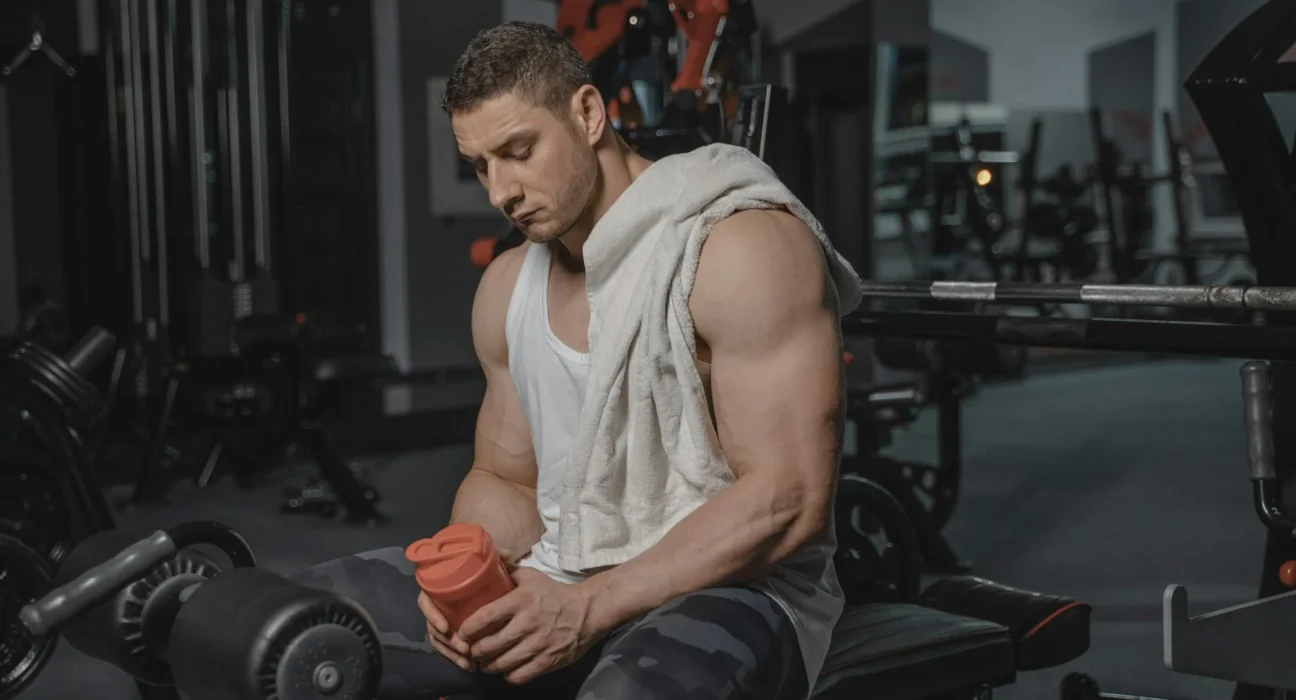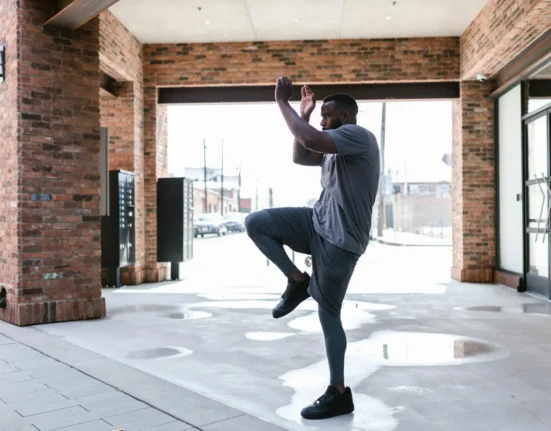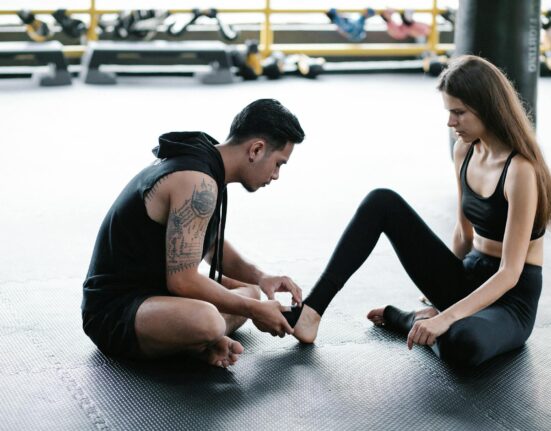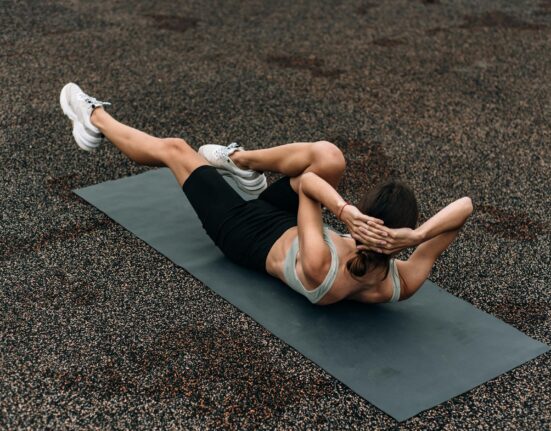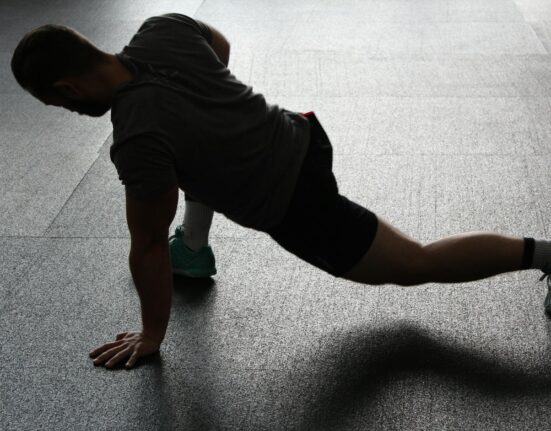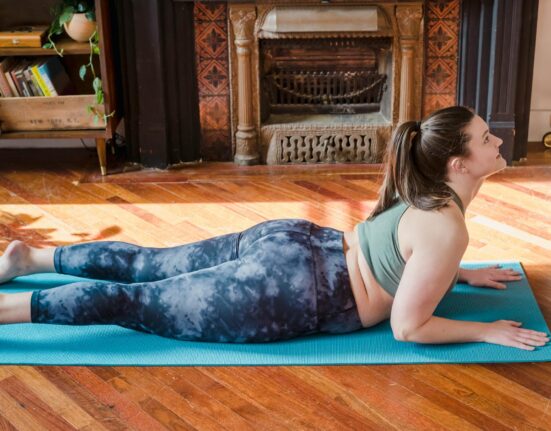There’s a certain feeling when you lace up your sneakers, ready to move. Whether at sunrise or after work, you want your body to fire on all cylinders. The right food at the right time does more than satisfy hunger—it powers every squat, step, and sprint.
Choosing smart meals before and after exercise isn’t just about willpower or fueling up. It shapes your mood, focus, and how fast you bounce back for tomorrow’s session. When you care about your health, eating well becomes part of the whole workout routine, not an afterthought.
This guide lays out simple, science-backed tips for what to eat before and after your workout, so you feel strong and ready, every single time.
The Science Behind Workout Nutrition
Before you start your workout or cool down after that final rep, your body acts a lot like a well-tuned car—it runs best on quality fuel, delivered at the right time. What you eat before and after exercise shapes your energy levels, mood, and even how quickly your muscles rebuild. Understanding a few core nutrition principles can take the guesswork out of mealtimes and turn every gym session into a step forward.
How Your Body Uses Fuel Before Exercise
Eating before you train preps your muscles for action. The foods you choose act like gasoline, filling up your tank so you don’t stall halfway through. Carbs, protein, and fat each play a unique role as they kick-start your system.
- Carbohydrates: Think of carbs as your body’s preferred quick-burn fuel. Just like a car running on high-octane gas, carbs let you sprint, jump, and lift more with less fatigue.
- Protein: While protein isn’t a main energy source during exercise, it helps prepare your muscles for the work ahead. A bit of protein protects muscle fibers, like installing gears to handle the road.
- Fat: Fats are your slow-burning fuel. For longer, lower-intensity workouts, your body taps into stored fat like a hybrid car sipping gas in eco mode.
Getting these nutrients right helps maintain stable blood sugar and keeps you fired up from start to finish.
What Happens During and After Your Workout
As you move, your body breaks down stored carbs (glycogen) for fast energy. When glycogen runs low, fatigue sets in, and muscles begin to feel heavy. This is why a balanced pre-workout meal matters so much: it can delay that drained feeling and keep you steady through the last set.
Once you’re done exercising, the real magic starts. Your muscles soak up nutrients like thirsty sponges to refill energy stores, rebuild torn fibers, and balance out stress hormones. Fast, targeted nutrition means quicker recovery and better performance tomorrow.
Macronutrients Explained: Carbs, Protein, and Fat
Here’s a quick breakdown of the three macronutrients and why you need each for workout success:
- Carbohydrates
- Function: Primary energy for muscles.
- Best Sources: Oats, brown rice, fruits, potatoes.
- Protein
- Function: Repairs and builds muscle tissue.
- Best Sources: Chicken, fish, Greek yogurt, beans.
- Fat
- Function: Provides lasting energy, supports cell health.
- Best Sources: Avocados, nuts, olive oil, salmon.
Think of this mix like building a simple meal: a bowl of oatmeal with berries and a spoonful of nut butter offers all three in one satisfying package.
Timing Matters More Than You Think
It’s not just what you eat, but when you eat it. Eating carbs and protein before and right after you exercise helps front-load and refill muscle energy stores. The closer you eat to your workout (within 30 to 60 minutes), the more your body uses that food for power or recovery. This small window can make your efforts count for more, every single session.
Knowing what happens inside your body can turn meal planning into strategy, not guesswork. These basics set you up for smarter choices and better workouts, day after day.
What to Eat Before a Workout: Best Foods and Timing
Getting the timing and choice of your pre-workout meal right can boost your energy and help you feel sharp and steady from the first rep to the final sprint. Eating the wrong foods or missing the perfect window can leave you tired, sluggish, or running for the bathroom instead of the weights. Preparing your body starts with smart snack choices and a little planning, whether you hit the gym at sunrise or after a long day.
Ideal Pre-Workout Foods for Steady Energy
The best pre-workout foods are easy to digest, provide quick energy, and keep you fueled without weighing you down. Carbohydrates give you the spark for movement, while a small dose of protein helps minimize muscle breakdown. Healthy fats can also play a part, especially if your workout is longer or less intense.
Some easy options that work before most workouts include:
- Banana with nut butter: Quick to grab and gentle on the stomach. Bananas pack potassium, which helps prevent cramps, and the nut butter adds a touch of protein and healthy fats.
- Oatmeal with berries: Oats Are slow-burning carbs, teamed with berries for vitamins and natural sugar. This makes a filling, balanced option—especially good for morning training.
- Whole grain toast with nut butter: Simple and satisfying. This gives a steady stream of energy and protein in one bite. Adjust the amount based on hunger and how soon you plan to exercise.
- Greek yogurt with fruit: Offers high protein and just enough carbs. Add sliced fruit or a drizzle of honey for fast fuel.
For quick snacking within 30 to 60 minutes of your session, choose smaller or simpler foods, such as:
- A small banana
- Handful of grapes
- Half a protein bar
Adjust your portions by workout type:
- Short/intense sessions (under 1 hour): Keep it light. A banana, a slice of toast, or half a cup of yogurt is usually enough.
- Longer or heavier sessions (over 1 hour): Add a bit more. A full bowl of oatmeal or a sandwich helps prevent the dreaded mid-workout fade.
If your workout is early in the morning, even a small snack is better than nothing. In the evening, aim to eat your main meal 2 to 3 hours before exercise, with a snack 30 to 60 minutes out if you need an extra kick.

Photo by Tima Miroshnichenko
What to Avoid Before Exercise
Some foods can put a hard stop to your best efforts. Greasy, heavy, or ultra-sweet choices might look tempting, but they make your stomach work overtime and can lead to cramps, bloating, or a crash halfway through your workout.
Foods to skip before exercise:
- Heavy, fried meals: Burgers, fries, or fried chicken digest slowly and sit in your stomach like a brick.
- High-fiber foods: While fiber keeps you full, too much before exercise (like beans, bran, or large salads) can spark stomach upset and unwanted trips to the restroom.
- Sugary drinks and candy: These may spike your energy, but the crash comes fast. You’ll start strong and finish dragging.
- Carbonated drinks: Soda or sparkling water often causes gas and bloating, which makes moving uncomfortable.
- Large, rich meals: Creamy sauces, large pasta dishes, or thick cheeses slow digestion and sap your power.
In short, aim for simple, familiar foods that provide a clean-burning mix of carbs and a bit of protein. Listen to your body and track what feels best for your schedule—your next great workout starts on your plate.
Post-Workout Nutrition for Recovery and Strength
Once you finish your workout and catch your breath, your next move can make all the difference in how you recover and gain strength. Right after exercise, your muscles are like a sponge—they soak up nutrients to fix tiny tears and refill lost energy. Getting the right foods after your sweat session helps you bounce back faster, build lean muscle, and show up feeling stronger for your next training day. Even if you’re on the go or squeezed for time, you can create quick and easy meals that your body will thank you for.
Best Post-Workout Foods and Quick Meals
Working out drains your muscle energy and breaks down fibers, leaving your body hungry for fuel and repair. You need to give it the right nutrients soon after you finish. Think of this as the “prime time” to help muscles rebuild stronger and restore what you’ve lost.
Some of the best post-workout foods mix protein for muscle repair with carbohydrates to replace lost energy. Here are some meal ideas that are both simple and powerful:
- Eggs: Scrambled, boiled, or in a sandwich, eggs deliver high-quality protein and healthy fats. Pair them with whole grain toast for a balanced refuel.
- Chicken or turkey: Lean grilled or shredded chicken breast tossed into a wrap or salad refills tired muscles. It’s easy to prep ahead and packs well for busy days.
- Tofu: For a plant-based option, tofu is full of protein. Try sautéed tofu with stir-fried veggies and rice for a satisfying meal.
- Quinoa: This grain is loaded with both protein and carbs. Mix quinoa with black beans, tomatoes, and avocado for a quick bowl.
- Protein smoothies: Blend frozen fruit, Greek yogurt, a scoop of protein powder, and a handful of spinach. It’s portable, cools you down, and gets into your system fast.
- Chocolate milk: This classic go-to brings carbs and protein in one easy sip. It’s simple, tasty, and proven to speed up muscle recovery.
Here’s how to build a fast, balanced post-workout meal:
- Start with a lean protein (chicken, eggs, tofu, or Greek yogurt).
- Add a serving of healthy carbs (whole grains, sweet potato, or fruit).
- Toss in a bit of color like leafy greens or peppers for vitamins.
Tips for Easy Recovery Meals:
- Batch cook proteins like grilled chicken or boiled eggs at the start of the week.
- Keep single-serving packs of Greek yogurt and nuts on hand.
- Stock the freezer with smoothie ingredients for grab-and-blend options.
If time’s tight, grab a banana with a handful of walnuts or some chocolate milk. The goal is to eat within an hour of finishing your workout.
Refueling Tips for Busy Schedules
Sticking to smart recovery meals is possible, even when your schedule feels packed. The key is a little planning and a few handy snacks that go wherever you do.
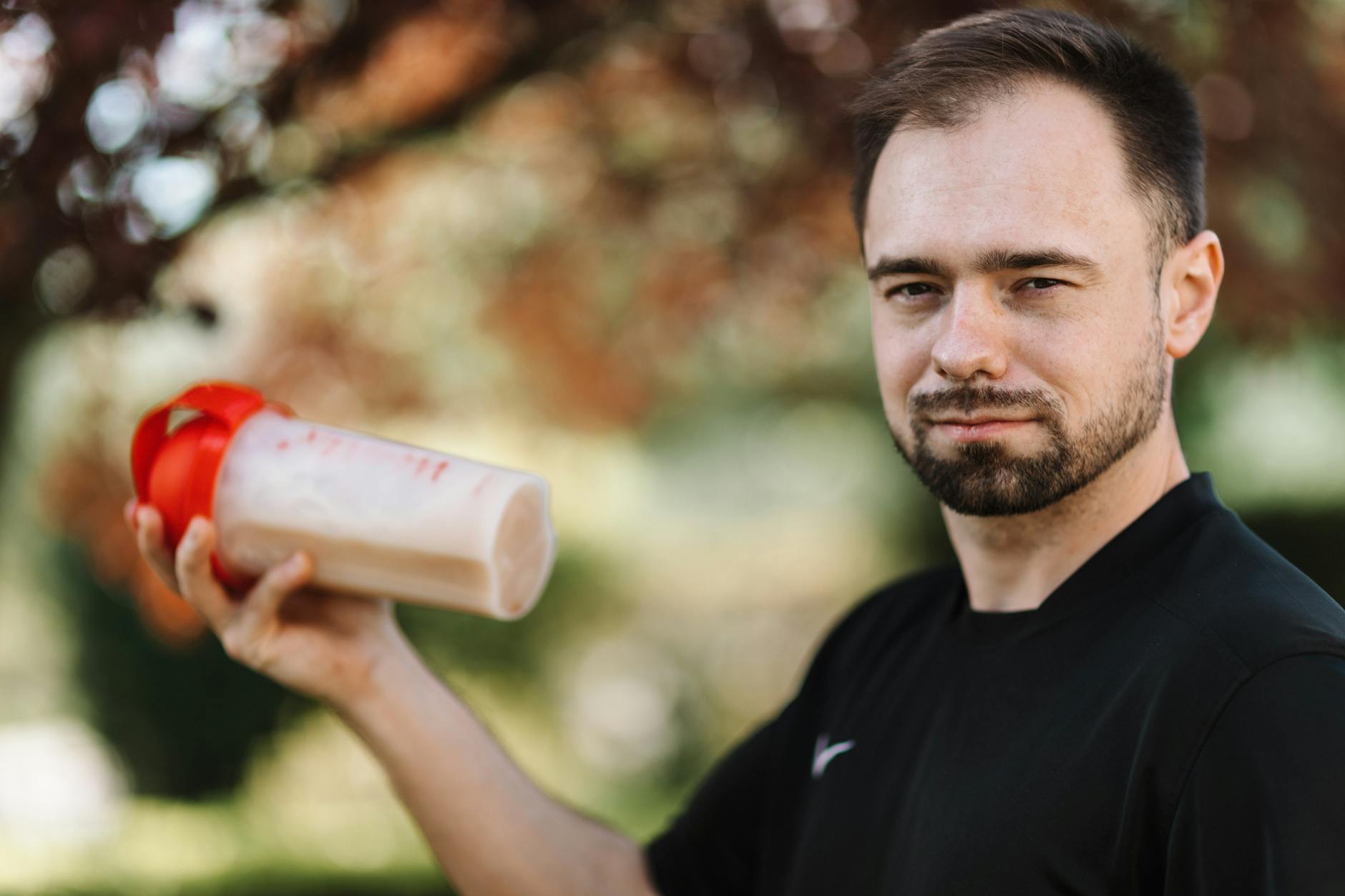
Photo by Kaboompics.com
Keep your post-workout nutrition strong with these practical ideas:
- Portable protein: Keep a protein shake, protein bar, or a small packet of nuts in your bag. These quick fixes replace what your muscles need right away.
- Meal prep: Cook grains, roast veggies, or portion out proteins into containers at the start of the week. Grab and go meals save time and keep you from skipping recovery.
- Single-serve dairy: Greek yogurt cups, cottage cheese, or string cheese are easy to store at work or toss in your gym bag.
- Fresh fruit: Apples, oranges, and bananas are nature’s original fast food. Pair a piece with a handful of seeds or nuts for lasting energy.
- Sandwich or wrap: Whole grain bread or tortillas filled with turkey, hummus, or tofu travel well and deliver balanced nutrition.
Planning ahead keeps you from reaching for candy or chips when hunger strikes after a workout. Eating right isn’t just for pro athletes—it’s doable for busy people, too. The more you practice, the more it becomes part of your daily groove.
Hydration: The Overlooked Key to Energy and Recovery

Photo by Ketut Subiyanto
Think of your body like a hardworking engine. Food gives you fuel, but water keeps everything running smoothly. Most people focus so much on what to eat before and after a workout that they forget the simple step of drinking enough water. Staying hydrated unlocks more energy, better performance, and quicker recovery.
Even slight dehydration can slow your stride, drain your focus, and make muscles cramp up before you reach the finish line. If you want every bite of your pre- and post-workout meal to count, support it with enough fluids throughout your day.
How Hydration Powers Your Workout
Every muscle contraction, heartbeat, and deep breath needs water. When you start to sweat, your body loses water and important minerals called electrolytes, like sodium and potassium. Lack of fluid makes your heart work harder and muscles tire quickly. Even a small drop in hydration—just 2% of body weight lost—can dull your speed and strength.
Drinking water before your workout primes you for action. When you sip during exercise, you help hold off the fatigue that slows you down. Hydration after a workout brings your system back in balance, washing away waste and starting the muscle repair process.
Signs You Need More Water
Sometimes your body whispers for water before you even feel thirsty. If you spot these early signs, it might be time to pause and drink:
- Dry, sticky mouth
- Headache or heavy head
- Feeling tired or cranky
- Muscle cramps or tightness
- Dark yellow urine
If these pop up during or after exercise, don’t just push through. Reach for water and let your body catch up.
Simple Ways to Stay Hydrated All Day
You don’t have to chug water until you feel sloshy. The key is to drink small amounts over time to keep your body topped off. Try these simple tips:
- Start early: Drink a glass of water when you wake up.
- Keep a bottle nearby: If you see it, you’ll remember to use it.
- Add flavor: Slice up fresh lemon, lime, or cucumber for a little taste.
- Pair water with meals and snacks: Every time you eat, take a few sips.
- Sip during your workout: Especially if you sweat a lot or train in heat.
A good goal for most is at least 8 cups a day, but you may need more on heavy workout days or if you’re in the sun.
Water vs. Electrolyte Drinks
Water does the job most of the time, but some sessions call for a bit extra. If your workout lasts longer than an hour, or it’s especially hot outside, you’ll want to replace some of the electrolytes lost in sweat.
Try these options in special cases:
- Sports drinks: These supply sodium and potassium to help prevent cramps on long training days.
- Coconut water: A natural choice with fewer added sugars and some key electrolytes.
- DIY mix: Add a pinch of salt and a splash of juice to your water if you need to go the extra mile.
Too much sugar or salt isn’t better, so use these only when needed. For most routines, plain water paired with good food provides everything you need.
Linking Water to Your Pre- and Post-Workout Meals
Hydration isn’t its own step; it should work with your eating habits. Drink a glass of water with your pre-workout snack—your body absorbs nutrients better when well-hydrated. After your workout, grab water right alongside your recovery meal to help move nutrients to tired muscles faster.
Think of hydration like sunlight for a growing plant. Food adds fuel, but water makes all your effort truly bloom.
Conclusion
Choosing the right foods and fluids before and after exercise turns each workout into progress you can feel. Simple meals built from wholesome carbs, lean proteins, and a splash of good fat help your body work hard and recover strong. Listening to your hunger, picking familiar snacks, and keeping a water bottle nearby add up to more energy and faster bounce-back day after day.
Every training session is a chance to pay attention to your body’s signals. Small choices—like reaching for fruit or sipping that glass of water—fuel not just muscles but your motivation too. Give yourself credit for every step and every smart meal, and let each routine build your health one bite at a time.
Fuel with intention, trust your hard work, and know that every effort shapes a brighter, stronger you. Thanks for reading—share your favorite workout snacks below and keep the energy going!


